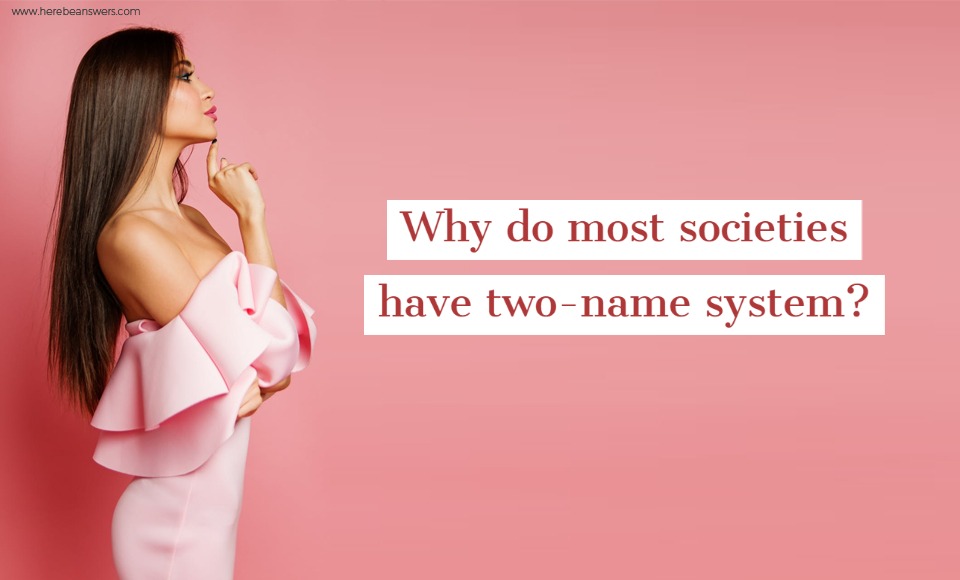Family is a big part of almost every culture because of our instincts to have kids and support them and ensure that our genes get passed down. We have a natural desire to make sure our kids do well, so they can have kids and pass down their genes, thus ensuring the survival of the species. In human societies, communication is one of the most fundamental elements that distinguish us as intelligent beings. Without communication, civilization as we know it would not exist. For such a system of communication to persist, we must understand each other and learn to recognize one person from another.
If society were limited to two or three people, we would not need to call each other by name. However, when hundreds of people come to live together, it is essential that we learn to associate each person with a different term. These terms or names allow us to make a connection with someone. When someone is given a name, they are recognized and accepted as an individual of their society. That name becomes as much a part of their identity as their character and their appearance.
So, in a world filled with billions of people, we find that it is normal for people to have more than one name. Most USA citizens have three names. Many Mexican and Spanish citizens have four names. Why does this happen and what was the cause behind the current system of names in the world as we see it?
The first name of a person is unique to their identity, which means that it is not intended to be the same as the name of some other person. For example, in the name Billy Charlie Brown, Billy is the first name and is what the friends and relatives of someone refer to them with.
After a first name, most people also have a second or middle name. A middle name may be a unique name just like the first name, it might be a name based on the name of one’s spouse, or it might be one of their parents’ names (patronymic or matronymic). A patronymic or surname is that component of someone’s name that is based on the first name of their father, their grandfather, or any earlier ancestor that was a male. In contrast, a matronymic is the part of one’s name that is similar to the first name of their mother or some female ancestor. It is also frequent for people to get named after their children, rather than using the name of either of their parents. This, however, almost always happens post-marriage. Charlie in Billy Charlie Brown is the middle name and could belong to either of the categories mentioned above.
The last name or the family name is that part of a personal name that is based on a person’s family or tribe. Family names usually last several generations and are based on the name of the person that has a unique place in the ancestry (e.g., one that participated in migration or was renowned for their social status). Just like middle names, family names may also change with respect to the name of the spouse. The name Brown is the family name in Billy Charlie Brown.
Even though there are many differences in the world from culture to culture, one thing that is found to be common is that the personal names of people have at least two parts. The first part of the name is unique to their identity, and the second one associates them with a certain family or person. This is important because if two or more people have the same first name, others can distinguish between them using their respective second names.
Historically speaking, throughout most of the world, newborns were given a name that always included a patronymic. Until recently, generally, the children born without a known father were named after their mothers. Although rare, people were known to change their father’s name to their mother’s name in their personal names. The practice of naming people based on the names of their children was also common in the past. Places like Arabia, Asia, and Korea are all known to have adopted these methods at one point or another. It is believed that the use of a parent’s name is much older than the use of family names.
